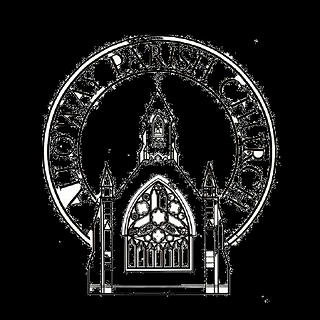The Journey to Forgiveness: Reflecting on Good Friday and the Judas Tree
- Steve Maw
- Apr 8, 2023
- 2 min read

Let's take a moment to reflect on Good Friday, a day filled with events and characters that eventually led to Jesus of Nazareth's crucifixion. As we explore this story, let's remember that the journey to forgiveness is not always straightforward, but it is never too late to seek it.
At the heart of the crucifixion is betrayal, and one individual often bears the brunt of the blame: Judas Iscariot. Though he was one of Jesus's closest friends, he betrayed him for 30 pieces of silver, marking his treachery with a kiss of peace. Yet, as we examine the story more closely, we find that Judas was not the only one who betrayed Jesus that night. Most of the disciples faltered, and even Simon Peter denied Jesus three times.
When we think of Judas, it's easy to judge him harshly for his actions. However, let's take a moment to consider: what if Judas had been in the room with the other disciples after the resurrection? Would he not also have heard Jesus's words of peace? As we reflect on the cross, it is crucial to remember that we too have moments when we betray Jesus by not using our time, talents, and treasures for his kingdom, or by failing to love God and our neighbours fully.
Forgiveness is hard work, and it sometimes takes years to truly achieve it. However, we should strive to be quick to forgive and slow to judge. As we ponder the darkness that Jesus endured during his crucifixion, we are reminded of the early church's belief that Jesus descended into hell to liberate souls imprisoned by their own treachery. Could it be possible that Jesus encountered Judas again, offering him forgiveness even in his darkest hour?
This idea of forgiveness is beautifully illustrated in a piece of prose called "The Ballad of the Judas Tree" by Ruth Etchells:
And there grew a Judas tree, where Judas hanged and died,
Because he could not bear to see his master crucified.
Our Lord descended into hell and found his Judas there,
Forever hanging on the tree grown from his own despair.
So Jesus cut his Judas down and took him in his arms,
"It was for this I came," he said, "and not to do you harm.
My father gave me twelve good men, and all of them I kept;
The one betrayed and one denied, some fled, and others slept.
In three days' time, I must return to make the others glad;
But first I had to come to hell and share the death you had.
My tree will grow in place of yours; its roots lie here as well.
There's no final victory without this soul from hell.
The poem serves as a reminder that Jesus forgave Judas first, even though he was the one who betrayed him the most.
So if you feel you have been betrayed or have betrayed others, remember that God has not forgotten you. It's never too late to seek forgiveness, and it's never too late to forgive. As we contemplate the events of Good Friday, let us keep in mind Jesus's words from the cross: "Father, forgive them. They know not what they do."
Good Friday and Holy Saturday can be an opportunity for us all to reflect on our own journeys to forgiveness and remember the power of redemption that comes from Jesus's sacrifice on the cross.










Comments